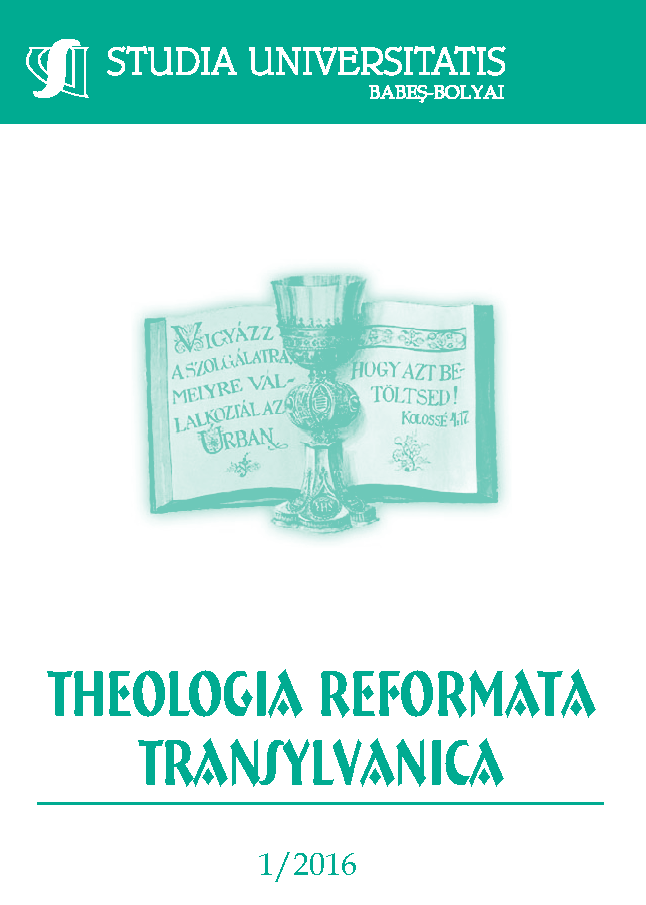Női-férfi szerepek a koedukációs oktatás tükrében Sárospatakon a 19. században
Keywords:
education history, school history, female education, girls’ education, school history.Abstract
Male and Female Roles in the Perspective of Coeducation in Sárospatak in the 19th Century.
For a long time, the possibility of education of women was determined by public opinion, meaning especially that of men. With respect to their different roles, according to the dominant beliefs, women should stick to the old, traditional tasks and roles inherited from antiquity, not wanting anything more. Obviously – as discussed – this kind of perception could not survive for long. Women did not want to take over the role of the stronger sex, but to be educated in order to perform their tasks better and to fulfil their roles with more quality. After all, only an educated person can educate others. How would they educate intelligent, resourceful men for the country, if they themselves could not share in the opportunities provided by education? That is why a lot of efforts were made which eventually paved the way to the opportunities available today. By now, perhaps we have fallen on the other extreme. From time to time, the over-emphasis of emancipation – in our understanding – is an excuse for not fulfilling one’s real roles. As a consequence, the true values and roles which both sexes should fulfil have been far removed from what is normal. A working mother asserting her interest to work is just unable to qualify for the role, next to all other ones, which is the finest one in the world, to truly be a mother. The image of the man holding the role of the breadwinner became so diverse. The alcoholic, aggressive or even workaholic dads are not drawing the ideal father figure of themselves. But all this may not fall within the framework of our topic; it is just mentioned because today’s education has led to the blurring and distorting of roles.
References
BARCZA József: A Kollégium története 1849-től 1919-ig. In: A Tiszáninneni Református Egyházke-rület Elnöksége (szerk.): A Sárospataki Református Kollégium, Református Zsinati Iroda Sajtóosztálya, Budapest, 1981.
BORBÍRÓ Fanni: A nők helyzete és a nőkérdés alakulása a 19. századi Magyarországon. http://www.arkadia.pte.hu/magyar/cikkek/borbiro_nokhelyzete. 2013-01-14.
BAJKÓ Mátyás: Kollégiumi iskolakultúránk a felvilágosodás idején és a reformkorban. Akadémiai Kiadó, Budapest, 1976.
BÁTHORY Zoltán – FALUS Iván (főszerk.): Pedagógiai Lexikon. 2. köt, Keraban Könyvkiadó, Budapest, 1997.
BENDA Kálmán: A Kollégium története 1703-tól 1849-ig. In.: Tiszáninneni Református Egyházkerü-let Elnöksége A Sárospataki Református Kollégium, tanulmányok alapításának 450. évfor-dulójára, Tiszáninneni Református Egyházkerület Elnöksége, Református Zsinati Iroda Sajtóosztálya, Budapest, 1981.
BESSENYEI György: A holmi. Bécs, 1779.
DIENES Dénes (szerk.): Megkívántatik a rectorban, hogy légyen kevélység nélkül való… A Sárospataki Református Kollégium partikulái 1773-1926. Utószó, Sárospataki Református Kollégium Tudományos Gyűjteményei, Sárospatak, 2001.
DIENES Dénes: Fejezetek Ároktő történetéből. Helységpártoló Egyesület, Ároktő, 2002.
DIENES Dénes: Keresztúri Bíró Pál (1594?-1655). Sárospataki Református Kollégium Tudományos Gyűjteményei, Sárospatak, 2001.
EVVA Gabriella: A magyar nőnevelés két úttörője. Karacs Ferencné és Karacs Teréz nőnevelési néze-tei, Szeged, 1933.
FARAGÓ Tamás (szerk): Miskolc története III/2, 1702–1847. Borsod-Abaúj-Zemplén Megyei Le-véltár és a Miskolci Herman Ottó Múzeum, Miskolc, 2000.
ILLYÉS Endre: Egyházfegyelem a Magyar Református Egyházban (XVI–XIX. sz.). Debrecen, 1941.
MAKKAI László: A Kollégium története alapításától 1650-ig. In.: Tiszáninneni Református Egyház-kerület Elnöksége (szerk.): A Sárospataki Református Kollégium, tanulmányok alapításá-nak 450. évfordulójára, Református Zsinati Iroda Sajtóosztálya. Budapest, 1981.
MÉSZÁROS István: Népoktatásunk 1553–1777 között. Tankönyvkiadó, Budapest, 1972.
MISÁK Marianna: A Tiszáninneni Református Egyházkerület Sztárai Mihály Lelkészkórusának története. Tiszáninneni Református Egyházkerület, Miskolc, 2011.
MOLNÁR Aladár: A közoktatás története Magyarországon a XVIII. században. 1. köt., Magyar Tu-dományos Akadémia Történeti Bizottsága, Budapest, 1881.
OROSZ Lajos: Brunszvik Teréz és a magyar nőnevelés. In.: Brunszvik Teréz pedagógiai munkássága, Vág Ottó-Orosz Lajos-Zibolen Endre tanulmányai. Tankönyvkiadó, Budapest, 1962.
PÁLHEGYI Ferenc (összeáll.): Neveléstörténeti olvasmányok Fináczy Ernő műveiből. Budapest, 1992.
RAVASZ János (szerk.): Dokumentumok a magyar nevelés történetéből 1100–1849. Tankönyvkiadó, Budapest, 1966.
RÉVÉSZ Kálmán: Egy múlt századi adat az elemi iskoláról. In: Dunántúli protestáns Lap. 1893. IV. évf.
SCHWARCZ Etel: Nőnevelés és oktatás a 19. században Magyarországon. Debrecen, 1938.
SZENTIMREI Mihály: A Sárospataki Református Kollégium története, Sárospatak, 1996. [Kézirat]
Levéltári források:
Sárospataki Református Kollégium és Teológia Gyűjtőlevéltára
B. LXXI. 32,381.
B. LXXII. 33,049.
B.LXXIII. 33,375.
B. LXXIII. 33,972.
R.B. I.4/5.
R.A.III.3/9.
R.A.III.3/9.
Downloads
Published
How to Cite
Issue
Section
License
Copyright (c) 2016 Studia Universitatis Babeș-Bolyai Theologia Reformata Transylvanica

This work is licensed under a Creative Commons Attribution-NonCommercial-NoDerivatives 4.0 International License.






